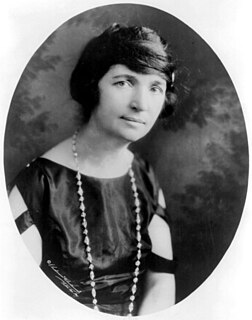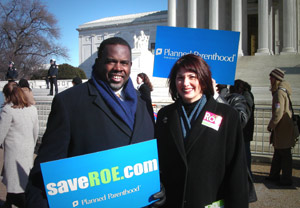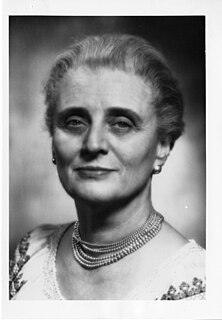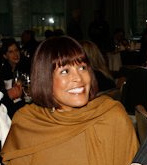Related Research Articles

Margaret Higgins Sanger, also known as Margaret Sanger Slee, was an American birth control activist, sex educator, writer, and nurse. Sanger popularized the term "birth control", opened the first birth control clinic in the United States, and established organizations that evolved into the Planned Parenthood Federation of America.

The United States abortion-rights movement is a sociopolitical movement in the United States supporting the view that a woman should have the legal right to an elective abortion, meaning the right to terminate her pregnancy, and is part of a broader global abortion-rights movement. The movement consists of a variety of organizations, with no single centralized decision-making body.
Planned Parenthood Federation of America, Inc. (PPFA), or Planned Parenthood, is a nonprofit organization that provides reproductive health care in the United States and globally. It is a tax-exempt corporation under Internal Revenue Code section 501(c)(3) and a member association of the International Planned Parenthood Federation (IPPF). PPFA has its roots in Brooklyn, New York, where Margaret Sanger opened the first birth control clinic in the U.S. in 1916. Sanger founded the American Birth Control League in 1921, which changed its name to Planned Parenthood in 1942.
NARAL Pro-Choice America, commonly known as simply NARAL, is a non-profit 501(c)(4) organization in the United States that engages in lobbying, political action, and advocacy efforts to oppose restrictions on abortion, to expand access to abortion and birth control, and to support paid parental leave and protection against pregnancy discrimination.
Many jurisdictions have laws applying to minors and abortion. These parental involvement laws require that one or more parents consent or be informed before their minor daughter may legally have an abortion.
Byllye Yvonne Avery is an American health care activist. A proponent of reproductive justice, Avery has worked to develop healthcare services and education that address black women's mental and physical health stressors. She is best known as the founder of the National Black Women's Health Project, the first national organization to specialize in Black women's reproductive health issues. For her work with the NBWHP, she has received the MacArthur Foundation's Fellowship for Social Contribution and the Gustav O. Lienhard Award for the Advancement of Health Care from the Institute of Medicine of the National Academy of Sciences, among other awards.

Mary Steichen Calderone was an American physician and a public health advocate for sexual education. Her most notable feat was overturning the American Medical Association policy against the dissemination of birth control information to patients.

Americans United for Life (AUL) is an American anti-abortion law firm and advocacy group based in Washington, D.C. Founded in 1971, the group opposes abortion, euthanasia, assisted suicide, embryonic stem cell research, and certain contraceptive methods. The organization has led campaigns and been involved in judicial actions to prevent the passage and implementation of legislation that permits abortion, or may increase prevalence of abortion, including successfully defending the Hyde Amendment in the U.S. Supreme Court.

Faye Wattleton is an American reproductive rights activist who was the first African American and the youngest president ever elected of Planned Parenthood Federation of America, and the first woman since Margaret Sanger to hold the position. She is currently Co-founder & Director at EeroQ, a quantum computing company. She is best known for her contributions to family planning and reproductive health, and the reproductive rights movement.
Abortion in Italy became legal in May 1978, when Italian women were allowed to terminate a pregnancy on request during the first 90 days. A proposal to repeal the law was considered in a 1981 referendum, but was rejected by nearly 68% of voters; another referendum aimed at eliminating the restrictions was rejected by 88.4%.
This is a timeline of reproductive rights legislation, a chronological list of laws and legal decisions affecting human reproductive rights. Reproductive rights are a sub-set of human rights pertaining to issues of reproduction and reproductive health. These rights may include some or all of the following: the right to legal or safe abortion, the right to birth control, the right to access quality reproductive healthcare, and the right to education and access in order to make reproductive choices free from coercion, discrimination, and violence. Reproductive rights may also include the right to receive education about contraception and sexually transmitted infections, and freedom from coerced sterilization, abortion, and contraception, and protection from gender-based practices such as female genital mutilation (FGM) and male genital mutilation (MGM).

The Margaret Sanger Award was an honor awarded annually by the Planned Parenthood Federation of America from 1966 to 2015. Created to honor the legacy of Margaret Sanger, the founder of Planned Parenthood, it is the Federation's highest honor. It is given to individuals to recognize excellence and leadership in the reproductive health and rights movement. Although it is identified as an annual award, it hasn't been given out and since 2015.

Abby Johnson is an American anti-abortion activist who previously worked at Planned Parenthood as a clinic director, but resigned in October 2009. She states that she resigned after watching an abortion on ultrasound. The veracity of her account and the details and motivation for her conversion have been challenged by investigative reporters, as medical records contradict some of her claims.

Leana Sheryle Wen is an American physician, an op-ed columnist with The Washington Post and a CNN medical analyst. She is a practicing physician, a former Health Commissioner for the City of Baltimore, and author of the books When Doctors Don't Listen: How to Avoid Misdiagnoses and Unnecessary Tests and Lifelines: A Doctor's Journey in the Fight for Public Health. Currently, she is a Research Professor of Health Policy and Management at the George Washington University, where she is a Distinguished Fellow in the Fitzhugh Mullan Institute for Health Workforce Equity. She is also a Nonresident Senior Fellow at the Brookings Institution.
Communist and Marxist ideologies generally allow state-provided abortion, although there is no consensus among Communist parties and governments about how far into the pregnancy abortion should be allowed.
The SisterSong Women of Color Reproductive Justice Collective, also known as SisterSong, is a national activist organization dedicated to reproductive justice for women of color. The non-profit defines reproductive justice as the human right to maintain personal bodily autonomy, have children, not have children, and parent the children we have in safe and sustainable communities.
Abortion in Montana is legal. The number of abortion clinics in Montana has fluctuated over the years, with twenty in 1982, twelve in 1992, eight providers of which seven were clinics in 2011, and five clinics in 2014. There were four clinics from 2015 to February 2018 when All Families Healthcare clinic in Whitefish opened. There were 1,690 legal abortions in 2014, and 1,611 in 2015.
Abortion in Washington is legal. 60% of adults said in a poll by the Pew Research Center that abortion should be legal in all or most cases.
Abortion in Wisconsin is legal up to the 22nd week of pregnancy. 53% of adults said in a poll by the Pew Research Center that abortion should be legal in all or most cases. However, the Center for Reproductive Rights in its What if Roe Fell website labels the state as hostile towards abortion rights e.g., 20-week ban, telemedicine ban, TRAP requirements, admitting privileges requirement, transfer agreement requirement, reporting requirement, parental consent required, mandatory counseling, mandatory ultrasound and waiting period requirements.
References
- 1 2 3 4 5 6 7 8 9 10 11 12 13 14 15 McFarlane, Deborah (November 10, 2007). "Transcript of Interview with Lee Minto" (PDF). Smith College. Archived from the original (PDF) on October 1, 2016. Retrieved October 7, 2017.
- ↑ "Archives West: Lee Minto papers, 1960-2010". archiveswest.orbiscascade.org. Retrieved 2017-10-07.
- 1 2 3 4 5 "Lee Minto, Director of Planned Parenthood from 1967 to 1993, recalls the history of abortion reform - HistoryLink.org". www.historylink.org. Retrieved 2017-10-07.
- 1 2 3 4 5 6 "Abortion Reform in Washington State - HistoryLink.org". www.historylink.org. Retrieved 2017-10-08.
- ↑ Nelson, Jennifer (6 March 2015). More than medicine : a history of the feminist women's health movement. New York. p. 58. ISBN 978-0814762776. OCLC 883881426.
- ↑ A., McCoy, John (2015). A still and quiet conscience : the archbishop who challenged a pope, a president, and a church. Maryknoll, New York. ISBN 9781626981171. OCLC 891609551.
- 1 2 "Family Planning Legislation, May 16 1991 | Video | C-SPAN.org". C-SPAN.org. Retrieved 2017-10-09.
- ↑ "Editorials & Opinion | Lee Minto -- Planned Parenthood's Pillar Of Persistence | Seattle Times Newspaper". community.seattletimes.nwsource.com. Retrieved 2017-10-07.